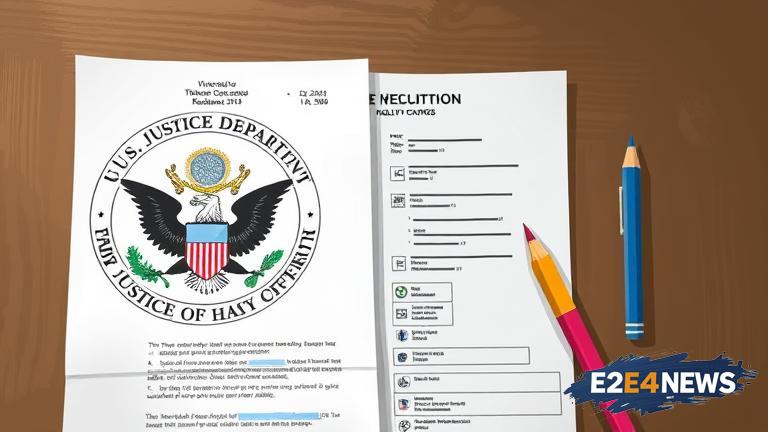The US Justice Department has recently issued subpoenas for the health records of young transgender patients, a move that has raised significant concerns among healthcare providers, patient advocates, and the LGBTQ+ community. The subpoenas, which were issued as part of an investigation into the use of puberty blockers and hormone replacement therapy in the treatment of gender dysphoria, have sparked fears that the Justice Department may be seeking to restrict access to these life-saving treatments. The investigation, which is being led by the Justice Department’s Civil Rights Division, has been criticized for its potential to undermine the rights of transgender individuals and compromise the confidentiality of their medical records. Many healthcare providers have expressed concerns that the subpoenas may intimidate patients and families, causing them to avoid seeking necessary medical care. The use of puberty blockers and hormone replacement therapy is a well-established and evidence-based treatment for gender dysphoria, and is widely recognized as a crucial component of comprehensive care for transgender individuals. However, some politicians and activists have sought to restrict access to these treatments, citing concerns about their safety and efficacy. The Justice Department’s investigation has been seen as a potential attempt to provide a pretext for such restrictions, and has been widely condemned by patient advocates and healthcare providers. The American Medical Association, the American Academy of Pediatrics, and other major medical organizations have all spoken out against the investigation, citing the importance of protecting patient confidentiality and ensuring that transgender individuals have access to comprehensive and evidence-based care. The subpoenas have also raised concerns about the potential for discrimination against transgender individuals, who already face significant barriers to accessing healthcare and other services. Many transgender individuals have reported experiencing discrimination and harassment in healthcare settings, and the Justice Department’s investigation has been seen as a potential exacerbation of these problems. The investigation has also sparked fears that the Justice Department may be seeking to restrict access to other forms of care that are essential for the health and well-being of transgender individuals, such as mental health services and social support. The LGBTQ+ community has been quick to condemn the investigation, with many organizations and individuals speaking out against the potential for discrimination and the importance of protecting patient confidentiality. The issue has also sparked a wider debate about the role of government in regulating healthcare and the importance of protecting patient autonomy. As the investigation continues, many are watching with bated breath to see how the Justice Department will proceed and what the potential consequences may be for transgender individuals and the healthcare providers who serve them. The use of subpoenas to obtain health records has been seen as a particularly aggressive tactic, and has raised concerns about the potential for overreach and abuse of power. The Justice Department has defended its actions, citing the need to investigate potential violations of federal law and ensure that healthcare providers are complying with relevant regulations. However, many have questioned the motivations behind the investigation, and have expressed concerns that it may be driven by a desire to restrict access to care for transgender individuals rather than a genuine concern for patient safety. The investigation has also highlighted the need for greater transparency and accountability in government, and has sparked calls for increased oversight and scrutiny of government actions. As the situation continues to unfold, it remains to be seen what the ultimate consequences of the investigation will be, and what the potential impact may be on the lives of transgender individuals and the healthcare providers who serve them. The issue has sparked a national conversation about the importance of protecting patient confidentiality and ensuring that all individuals have access to comprehensive and evidence-based care, regardless of their gender identity or expression. The US Justice Department’s investigation has been widely condemned, and has sparked fears that the rights of transgender individuals may be under threat. The use of subpoenas to obtain health records has been seen as a particularly aggressive tactic, and has raised concerns about the potential for overreach and abuse of power. The investigation has also highlighted the need for greater transparency and accountability in government, and has sparked calls for increased oversight and scrutiny of government actions.
